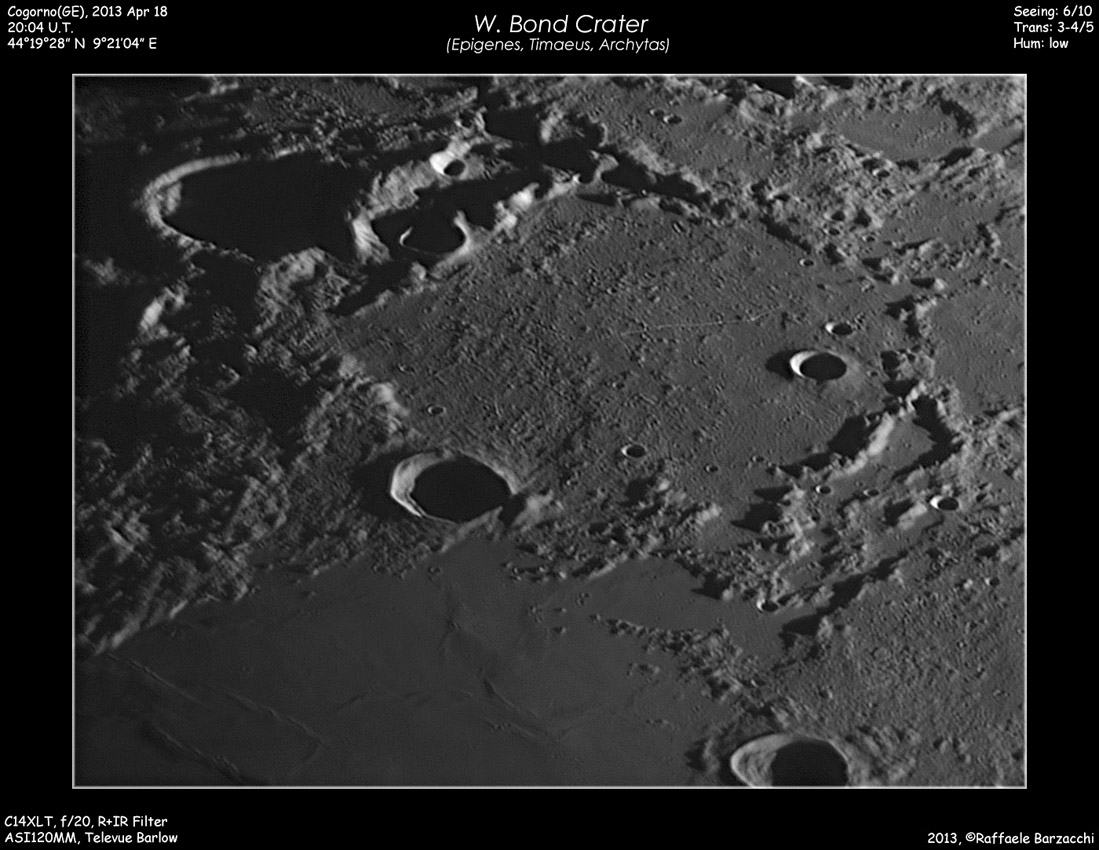Difference between revisions of "May 14, 2013"
| Line 1: | Line 1: | ||
__NOTOC__ | __NOTOC__ | ||
=V-Rille= | =V-Rille= | ||
| − | |||
<!-- ws:start:WikiTextHeadingRule:0:<h1> --> | <!-- ws:start:WikiTextHeadingRule:0:<h1> --> | ||
<!-- ws:start:WikiTextLocalImageRule:6:<img src="/file/view/LPOD-May14-13.jpg/431303338/LPOD-May14-13.jpg" alt="" title="" /> -->[[File:LPOD-May14-13.jpg|LPOD-May14-13.jpg]]<!-- ws:end:WikiTextLocalImageRule:6 --><br /> | <!-- ws:start:WikiTextLocalImageRule:6:<img src="/file/view/LPOD-May14-13.jpg/431303338/LPOD-May14-13.jpg" alt="" title="" /> -->[[File:LPOD-May14-13.jpg|LPOD-May14-13.jpg]]<!-- ws:end:WikiTextLocalImageRule:6 --><br /> | ||
| − | <em>image by [mailto:raffaele.barzacchi@gmail.com Raffaele Barzacchi]</em><br /> | + | <em>image by [mailto:raffaele.barzacchi@gmail.com" rel="nofollow Raffaele Barzacchi]</em><br /> |
<br /> | <br /> | ||
I continue to image the feeble "Rima W. Bond." As we see, even from the various maps and LROC, the rille in question has a "size" almost the same as the large crater W. Bond. Actually my personal effort, over many years of shooting, was dedicated to the first section (to the west) of the rille, of darker color. This time I managed to resolve it all and the "V" form took place at the classical one. Normally you easily see the second stretch eastward that is light in color. But the first is difficult and rarely seen. So after years of hunting ... I did it!<br /> | I continue to image the feeble "Rima W. Bond." As we see, even from the various maps and LROC, the rille in question has a "size" almost the same as the large crater W. Bond. Actually my personal effort, over many years of shooting, was dedicated to the first section (to the west) of the rille, of darker color. This time I managed to resolve it all and the "V" form took place at the classical one. Normally you easily see the second stretch eastward that is light in color. But the first is difficult and rarely seen. So after years of hunting ... I did it!<br /> | ||
The crater in question is one of the oldest, is very large and fairly level. Inside there are many structures: craters, little rilles and highlands. It is really full of details and this particular aspect (plan and details) makes it almost unique and very interesting.<br /> | The crater in question is one of the oldest, is very large and fairly level. Inside there are many structures: craters, little rilles and highlands. It is really full of details and this particular aspect (plan and details) makes it almost unique and very interesting.<br /> | ||
<br /> | <br /> | ||
| − | <em>[mailto:raffaele.barzacchi@gmail.com Raffaele Barzacchi]</em><br /> | + | <em>[mailto:raffaele.barzacchi@gmail.com" rel="nofollow Raffaele Barzacchi]</em><br /> |
<br /> | <br /> | ||
<strong>Related Links</strong><br /> | <strong>Related Links</strong><br /> | ||
Revision as of 22:45, 4 January 2015
V-Rille

image by " rel="nofollow Raffaele Barzacchi
I continue to image the feeble "Rima W. Bond." As we see, even from the various maps and LROC, the rille in question has a "size" almost the same as the large crater W. Bond. Actually my personal effort, over many years of shooting, was dedicated to the first section (to the west) of the rille, of darker color. This time I managed to resolve it all and the "V" form took place at the classical one. Normally you easily see the second stretch eastward that is light in color. But the first is difficult and rarely seen. So after years of hunting ... I did it!
The crater in question is one of the oldest, is very large and fairly level. Inside there are many structures: craters, little rilles and highlands. It is really full of details and this particular aspect (plan and details) makes it almost unique and very interesting.
" rel="nofollow Raffaele Barzacchi
Related Links
Rükl plate 4
21st Century Atlas chart 10.



